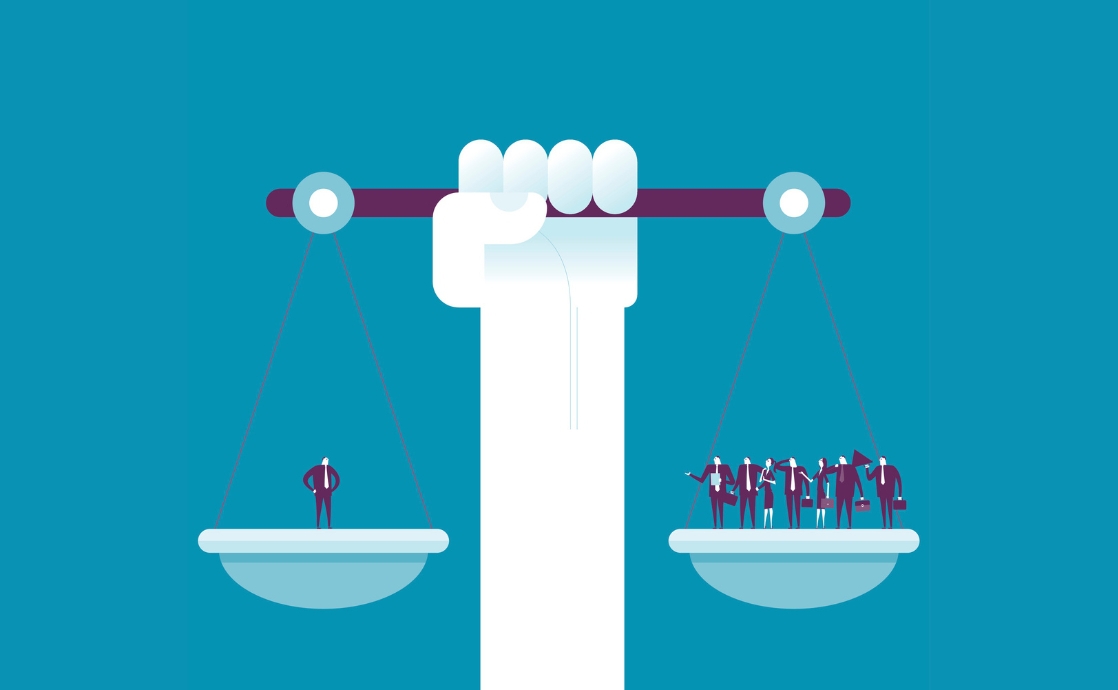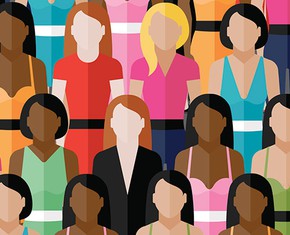The views expressed in our content reflect individual perspectives and do not represent the authoritative views of the Baha'i Faith.
Lately the proliferation of strikes, resignations, and demands for workplace justice have dominated news about business – and for good reason. We all want just and equitable workplaces.
Of course, justice operates on both an institutional and an individual level, so in this article let’s look at the more local or personal issues of justice in the workplace. The Baha’i teachings give us a sense of the importance of justice, as Baha’u’llah wrote in his Most Holy Book: “O people of God! That which traineth the world is Justice, for it is upheld by two pillars, reward and punishment. These two pillars are the sources of life to the world.”
RELATED: Justice: The Organizing Principle of All Commerce
One of the necessary functions of every business enterprise — to develop human talents and abilities — can help us understand the role of justice in the workplace. All organizations administer justice through their systems of reward and punishment, and thereby exert an extreme influence on the shaping of human character, talents and skills.
The employee rewarded for rising above his peers in competition will develop a competitive and individualistic nature, while the employee rewarded for successfully facilitating a cooperative team will develop the talents of listening, empathy, and appreciation of diverse views. Viewed in that light, this system of the organization must be designed with a view toward not merely exploiting current abilities, but developing those spiritual virtues latent within the human personality.
Two individuals may be born with exactly equal natural talent and ability. One, however, may have grown up in a family that had no access to computers — while the other grew up with her own computer at a very early age, and cannot remember a time when she was not connected to the internet. These two individuals, although born with equal capacity, will soon develop different talents and abilities based on their environment, having little to do with their own choices. In our current culture one will do better in school than the other; and one will earn a far higher income than the other. Is this just? And what role does the corporation play in regard to this issue of justice?
In a speech he gave in New York in 1912, Abdu’l-Baha said that:
Difference of capacity in human individuals is fundamental. It is impossible for all to be alike, all to be equal, all to be wise. Baha’u’llah has revealed principles and laws which will accomplish the adjustment of varying human capacities. He has said that whatsoever is possible of accomplishment in human government will be effected through these principles. When the laws he has instituted are carried out there will be no millionaires possible in the community and likewise no extremely poor. This will be affected and regulated by adjusting the different degrees of human capacity.
This extremely important statement — “… this will be effected and regulated by adjusting the different degrees of human capacity” — has enormous implications for contemporary business and human resources practices. Once our societies and enterprises create laws and processes that can help alter human capacity, we will enable individuals to earn their fair share of compensation. This casts a light on the question in the previous paragraph, affording both of these children access to computers at an early age, and both the opportunity to develop their inherent capacities.
RELATED: Humanomics: Alleviating Poverty Through Virtues
Modern corporations understand the importance of developing the human capacity of their members, and therefore create systems that may enhance progress toward a just society. If the organization provides equal access to training, coaching, and opportunities to apply one’s skills, it promotes justice. If it does not, it denies justice. This understanding is essential in achieving justice for women and minorities. Justice cannot be achieved by governments alone. Schools and businesses share an equal responsibility for providing the fair and equitable opportunity for human development, as Abdu’l-Baha pointed out:
Why should man, who is endowed with the sense of justice and sensibilities of conscience, be willing that one of the members of the human family should be rated and considered as subordinate? Such differentiation is neither intelligent nor conscientious; therefore, the principle of religion has been revealed by Baha’u’llah that woman must be given the privilege of equal education with man and full right to his prerogatives. That is to say, there must be no difference in the education of male and female in order that womankind may develop equal capacity and importance with man in the social and economic equation. Then the world will attain unity and harmony.
Many societies make the erroneous assumption that if women or minorities are promoted and given greater opportunity, this will lead to a loss of economic power or status for men or the majority. This is based on what Robert Wright has termed “zero-sum” assumptions, versus “non-zero-sum” assumptions. A zero-sum assumption assumes that a fixed amount of wealth or happiness exists in the world. If you attain more wealth or happiness, then clearly, I must lose some. Zero-sum assumes that we all compete for our share of this fixed amount of money or happiness.
Clearly, the Baha’i writings do not share this restrictive, limited view. Rather, Baha’is accept a non-zero-sum assumption; that the amount of wealth and happiness are elastic, and that given sound principles, good behavior, and a just system, the amount of wealth can increase to meet the needs of all, and the wealthy can achieve greater happiness than they currently possess.
RELATED: Honesty and Trust Equal Social Capital
The simple statistical fact is that those societies in which women are given greater economic opportunity and freedom are those that have achieved greater economic success. Those that deny women economic opportunity are those that experience the worst poverty. Therefore, as Abdu’l-Baha said, progress becomes a non-zero-sum game, in which justice for one group can equal greater progress for all:
Among the results of the manifestation of spiritual forces will be that the human world will adapt itself to a new social form, the justice of God will become manifest throughout human affairs, and human equality will be universally established. The poor will receive a great bestowal, and the rich attain eternal happiness. For although at the present time the rich enjoy the greatest luxury and comfort, they are nevertheless deprived of eternal happiness; for eternal happiness is contingent upon giving, and the poor are everywhere in the state of abject need.
When societies and the businesses within them recognize and act on this powerful non-zero-sum assumption, their growth and development will inevitably soar.
















Comments
Sign in or create an account
Continue with Googleor